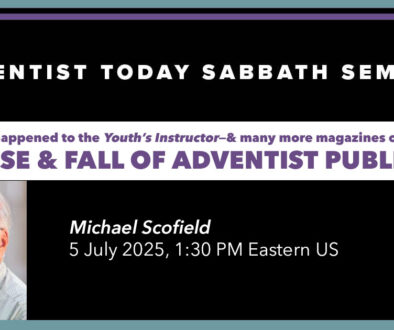Aunty, is God more likely to answer prayers when many people are praying for the same thing?
27 November 2023 |
Dear Aunt Sevvy,
Is God more likely to answer prayer if hundreds or thousands of people are praying for the same thing?
Signed, Needing answers
Dear Needing Answers,
There is a persistent view—probably because of passages such as John 14:13—that prayer is a way to get things done: that if we pray for a person’s cancer to go away, perhaps it will; or if we pray to be spared a hurricane, it might veer away and hit some other coastal city; or if we pray for travel mercies, our airplane won’t crash; or if we pray for guidance, we will make perfect choices that we’ll never regret.
What follows in the minds of some Christians is that the more prayers, the more pressure we put on God, the harder we beg, the more compelled God will feel to give us what we want. Aunty has been part of prayer events where many, many people are all praying for someone or something. Occasionally, the subject of the prayer recovers from illness, or the thing we’re praying for resolves as we want it to. Some desires, such as safety while traveling, are a good bet for positive answers, since extremely few airplanes crash. The success of other prayers, such as praying for the right job or the right spouse, can be hard to evaluate, because people tend to rationalize their responses to the situation—for example, God put me in this job to teach me something; or the failure of the marriage is my fault, not God’s.
But some prayers simply aren’t answered as we want them to be. Aunty has seen congregations lose faith when they invest heavily in praying for someone who doesn’t get healed. In fact, certain healing prayers, such as regrowing a lost limb, God appears never to answer in the affirmative.
Yet we keep asking for specific things from God because sometimes our prayers seem to be answered (and yes, there is more than a hint of behavioral conditioning here).
The Bible recommends prayer. But it also warns that more and louder words don’t mean more of God’s attention:
When you pray, don’t babble on and on as the Gentiles do. They think their prayers are answered merely by repeating their words again and again. After all, God, who is your Father, knows your needs before you ask him (Matthew 6:7-8).
Isaiah says that doing the right thing is more important than fasting and prayer:
Is this the kind of fast I have chosen, only a day for people to humble themselves? Is it only for bowing one’s head like a reed and for lying in sackcloth and ashes? … Is not this the kind of fasting I have chosen: to loose the chains of injustice and untie the cords of the yoke, to set the oppressed free and break every yoke? Isaiah 58:4-5
And please note that when Jesus prayed, his key phrase was,
…yet not my will, but yours be done (Luke 22:42).
In Aunty’s study of prayer, she’s come to the conclusion that fixing things isn’t the highest purpose of prayer. Prayer is used correctly:
- when it brings us closer to God’s will, rather than talking God into doing what we want done.
- when it motivates us to do all we can in our human power to fix a situation (such as going to the doctor, comforting those in grief, or helping those in poverty).
- when it brings us into harmony with one another as a praying community
- when we ask for forgiveness and salvation, which God promises to grant readily
When there is a need for healing or safety or guidance, Aunty instead prays for acceptance of God’s will and the peace of God’s presence—whether she’s praying for herself, or for others.
Aunt Sevvy
 Aunt Sevvy has collected her answers into a book! You can get it from Amazon by clicking here.
Aunt Sevvy has collected her answers into a book! You can get it from Amazon by clicking here.
You can write to Aunt Sevvy at DearAuntSevvy@gmail.com. Your real identity will never be revealed.




